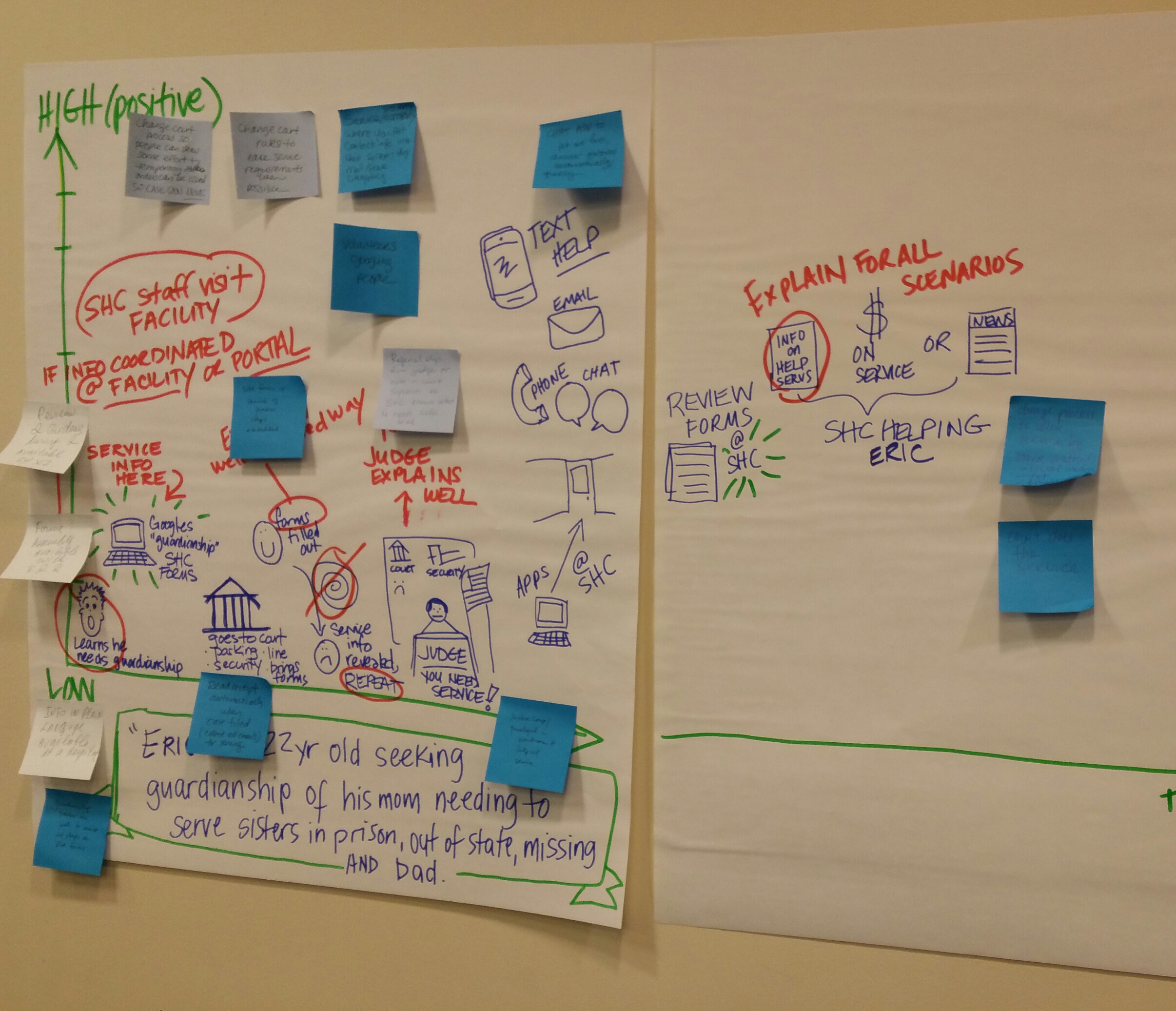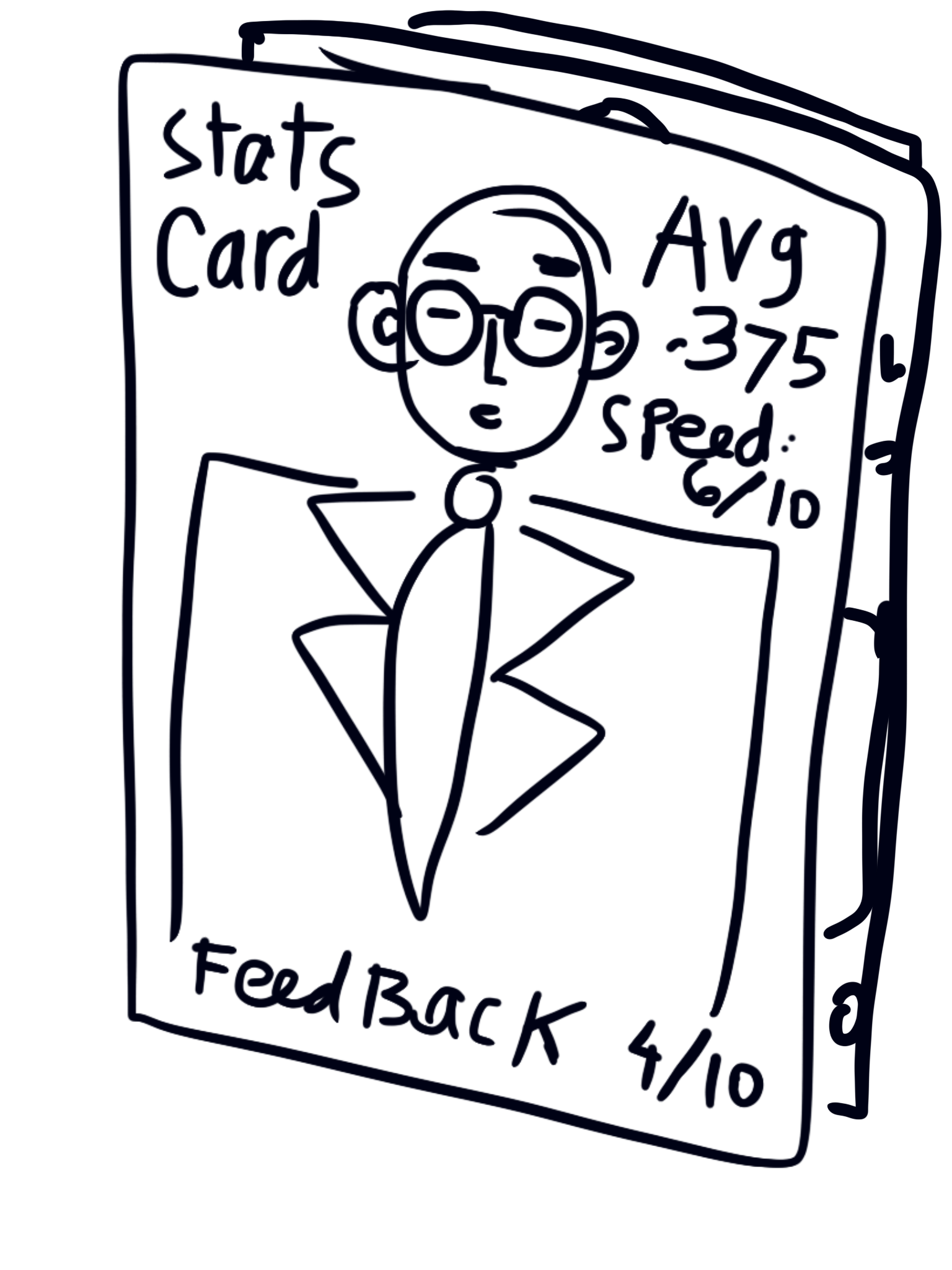Late last month, a small team of us at the Legal Design Lab ran a user-centered design workshop on how to make the courts more accessible. This workshop was part of the Self Represented Litigant Network Conference. We ran it in conjunction with the Harvard Access to Justice Lab, and its research director Erika Rickard.
At the workshop were approximately 45 court professionals, clerks, legal aid lawyers, self-help center directors, funders, students, and technologists. We presented them with two distinct challenges to work on, using the design process, over two hours.
The goal was primarily to train them in human centered design, and give them a sample design cycle with which to stretch their muscles. But it was also to come up with some research and concepts for better, more user-friendly courts.
The two challenges we presented to them, from which they could choose either one to work on as a team, were:
1. How do we help a person before they even come to a court to be better prepared to navigate it and use its resources?
2. How do we help someone who is trying to serve process in a guardianship proceeding to do so correctly and strategically?
Once we presented these design briefs and ran through what illegal design process to look like, we then had them form teams of 4 to 5 people comma and two do interviews, service nothing, brainstorming, and prototyping and storyboarding to get from problem to ideas for Solutions.
Within one hour and a half, they went from the design brief, then to maps of now and future problems/opportunities, then user journey maps, then brainstorms, then storyboard prototypes. It was a whole semester in an hour and a half — but the teams moved quickly and got to promising ideas fluidly. We ended with a first round of user testing, to get some initial feedback from each other about the idea they generated.
Among the ideas that were generated:
– A Housing problems app screener, to better spot underlying legally actionable issues
– A better in-court welcome and guidance system for first-time visitors
– An in-hospital program for doctors and medical professionals to help prep patients about the possibilities of medical debt and how to deal with it
– A guardianship service-of-process booklet guide
– An app that would help people record their EOB and medical bill information, scan for problems, and help automate responses on behalf of the person to let them know exactly how to fight these potential debts, or to fight for them automatically
Thanks to all the participants for their excellent work!


